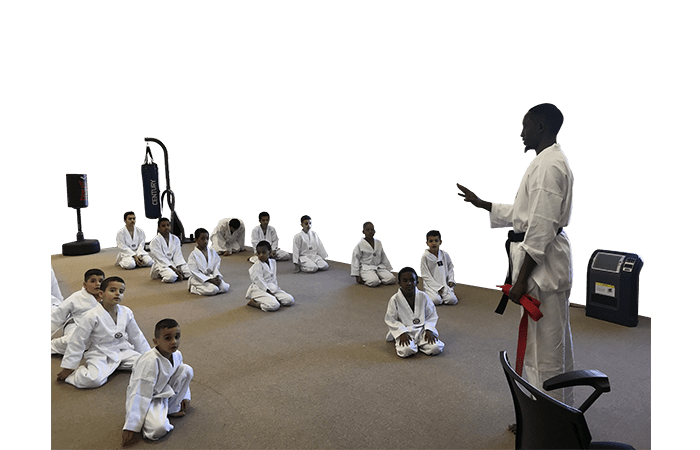Martial Arts Classes

Our programs have a strong focus on personal development. The foundations of our morals, values and core character traits are formed in our early years. For this reason, the programs at PA are an essential way to enhance the growth and personal development of young students of all ages.
This spiritual outlook on combat most distinctively resonates when looking at the Samurai and their code of Bushido (way of the warrior), in which a life of fighting was simultaneously fused with one of wisdom and tranquillity. It is through this parallel balance of the inner and outer, the strong and the gentle, the yin and the yang that one reaches true spiritual equilibrium. When it comes to Islam, there exists a code of honour that very much resembles bushido. Special fraternities based on chivalry have historically thrived in the Islamic tradition, with combat skill at the heart of them – built upon a philosophy known as ‘futuwwat’.
Futtuwat is traced back to Ali ibn Abi Talib, one of the greatest legendary warriors not only in Islamic literature, but in Arabian and global literature too. Imam Ali is deemed as the founder and main representative of the futtuwat spirit as the ultimate manifestation of the inner and outer equilibrium, through a lifetime of balancing spiritual struggle with military warfare (1). The famous narration is then understood with greater depth:
In the centuries to follow, the futtawat tradition bought about the initiation of the fityan, an order of young men who became spiritual knights, a symbol of rebellion against all evil and striving for sincere servanthood to God (2). This order of knights was built upon brotherhood bound by rites drawn from the principle of chivalry and the life of Ali ibn Abi Talib as the ultimate archetype. The tradition produced countless men throughout history who combined moral virtue, mercy and generosity with proverbial physical strength (3). Pahlawan Mahmud Khwarazmi (1322) is one such wrestler knight, a Persian legend of futtuwat who still has stories told about him through all of Iran until this day – and is one of the reasons why wrestling still thrives there as such a popular sport. What is relevant to our topic is that these men lived with a spiritual warrior mentality, in which they were very physically capable and athletically efficient yet they manifested the greatest acts of mercy and forgiveness, just as their master, Imam Ali, did. How could one truly be a spiritual knight of futtuwa if they still cannot express their body in combat form? It was imperative upon the fityan to engage in constant physical training. As the famous line goes, ‘learn to fight so that you won’t have to’. It is to have skill, confidence and mastery of one’s own self yet not having to use it. To respond to anger with mercy whilst one could very easily respond with violence. The greatest combat we will ever have to perform takes place within each and every single one of us. To become a true spiritual warrior whom battles the immaterial demons of the modern world, then it is only natural to manifest strength on the physical level.






